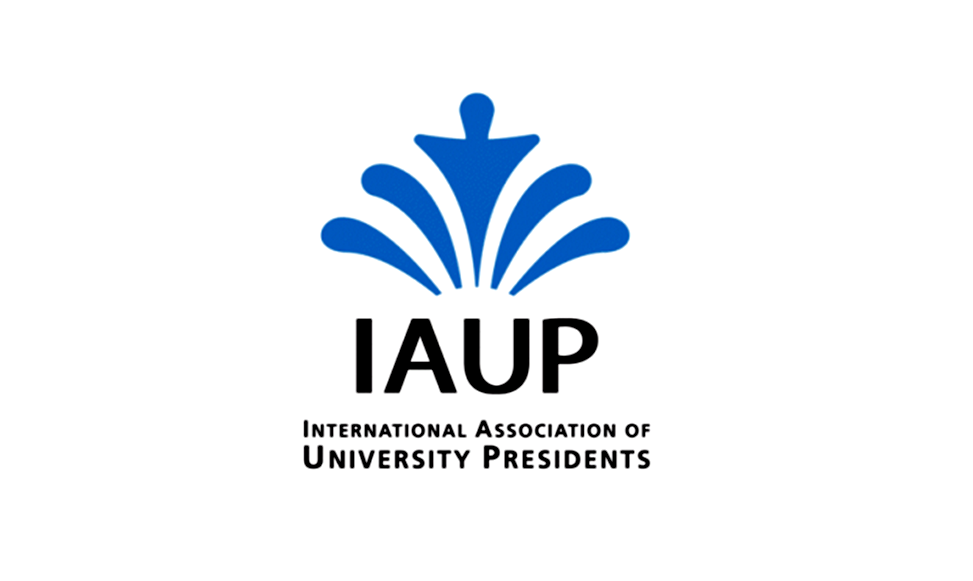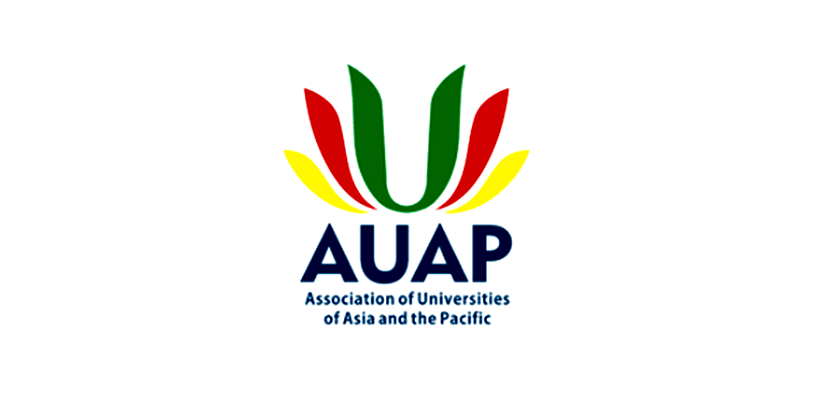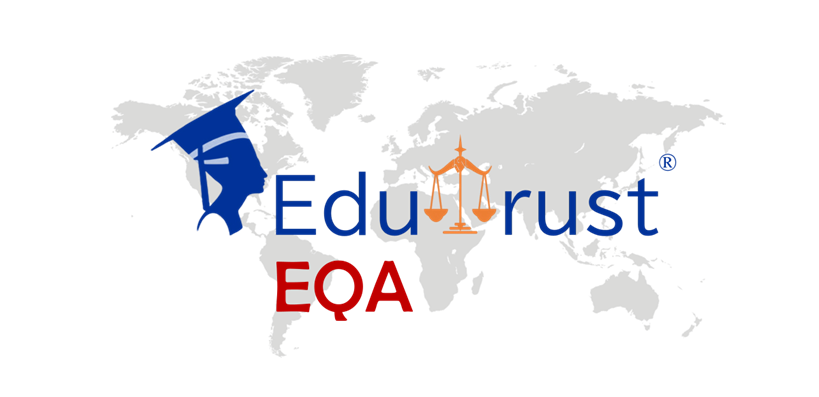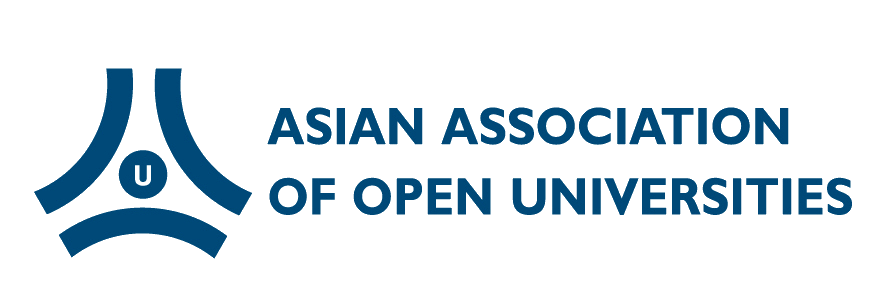Sciences
Bachelor of Science (Veterinary Bioscience) - North Terrace Campus, Roseworthy Campus
- Domestic
- International
About Degree
Keep animals happy and healthy
Veterinarians are dedicated to the wellbeing of animals. They are scientists, surgeons, carers, and lifelong learners.
Our Bachelor of Science (Veterinary Bioscience) is ranked 49th in the world for veterinary sciences and has a Five Star Excellence in Research Australia ranking^.
What will you do?
You’ll enjoy the smallest class size of any veterinary program in Australia. This means more personalised attention from our highly experienced teachers and researchers as you:
- explore the anatomy, physiology and behaviour of normal animals and identify the pathogenic organisms that attack them
- learn about animal handling and husbandry
- experience real industry settings including farms and intensive production facilities
- undertake a significant amount of hands-on animal work, starting in semester 1
- access our $37 million purpose-built veterinary teaching and research facilities.
Where could it take you?
This is the first part of the veterinary science program. Graduates gain direct entry into the Doctor of Veterinary Medicine program. Completing both degrees makes you eligible to register as a veterinarian, where you might own a practice or travel to farms around the country treating animals. Veterinary bioscience could also lead to roles in research in equine, zoo animal or wildlife medicine. You might even work in biosecurity, managing programs to prevent disease and pollution.
Entry Requirements
Choose your applicant type to view the relevant admissions information for this program.I am a:
- Domestic
- International
- the applicant's best selection rank such as:
- Admitted solely on the basis of ATAR
(regardless of whether this includes the consideration of adjustment factors) - Admitted where both ATAR and additional criteria were considered
(e.g. portfolio, audition, extra test, early offer conditional on minimum ATAR) - Admitted on the basis of other criteria only and ATAR was not a factor
(e.g. special consideration, audition alone, schools recommendation scheme with no minimum ATAR requirement)
Domestic applicants
Admissions information
| SATAC Code | 324491 |
|---|---|
| Deferment | Yes - 2 year |
| Intake | February |
| Prerequisites | SACE Stage 2: Biology or Chemistry or Mathematical Methods (if Maths subject was studied prior to 2017, the subject required was called 'Mathematical Studies'); OR IB: Biology (SL grade 4/HL grade 3) or Chemistry (SL grade 4/HL grade 3) or Mathematics: Applications and Interpretations (HL) or Mathematics: Analysis and Approaches (SL) ; OR equivalent. MathTrackX is an online bridging program available as a recognised alternative to Mathematical Methods. |
| Assumed Knowledge | SACE Stage 2: Physics IB: Physics |
| Additional Entry Requirements | All applicants are advised to read the Veterinary Bioscience Admissions Guide before applying for the Bachelor of Science (Veterinary Bioscience). This website sets out the eligibility requirements, the selection process and extra requirements such as (but not limited to) the Inherent Requirements and Vaccination Guidelines. Failure to read and comply with the guidelines will not be grounds for special consideration. There are inherent requirements associated with the Bachelor of Science (Veterinary Bioscience) that prospective students need to be aware of before applying. These requirements include, but are not limited to, physical fitness, physical capacity to learn how to handle a range of large and small animals; required vaccinations (specifically Q fever); and effective written communication. Applicants must read the Inherent Requirements and Vaccination Guidelines before submitting their application. By applying for this program, applicants are accepting these Inherent Requirements and Vaccination Guidelines. Note: entry is highly competitive and subject to availability each admissions year. Selection for the program will be based upon: Year 12: Selection Rank (ATAR) of 90 or above (including any applicable bonus points) Higher Education/Tertiary Transfer: Grade Point Average (GPA) of 5.0 or more (on a 7-point scale) or equivalent (see below for further requirements) STAT: Rank in the top decile AND 2) applicants must also complete a prescribed questionnaire about their life experiences and their knowledge and interest in veterinary science AND 3) applicants must also complete the Altus Suite assessments (Casper and Snapshot) Note for Tertiary Transfer applicants: Tertiary Transfer applicants who have studied Chemistry I and/or Biology I at the University of APSB (or equivalent) must have achieved at least a credit grade average in each of these courses. Alternatively, Tertiary Transfer applicants who do not meet this requirement can subsequently meet the requirement if they obtain a minimum Pass grade in a course at a higher year level for which Chemistry I and/or Biology I are prerequisite courses |
Selection Criteria
| Recent Secondary Education | Applicants with recent secondary education are those whose admission is primarily based on the completion of Year 12 within the last two years, however if you completed your secondary education more than two years ago, you may still be able to be considered on the basis of your secondary schooling. You must not have completed more than 2 years full time equivalent university study (48 units). You compete for a place with your Selection Rank (ATAR plus any applicable adjustment factors). Please refer to Additional entry requirements section for details of other entry requirements to the Veterinary Bioscience program. Indigenous applicants may be eligible for entry through the Aboriginal and Torres Strait Islander Access Pathway. See Wirltu Yarlu for further information. |
|---|---|
| Higher Education Study | You must have completed at least six months full time equivalent higher education study (the number of courses and units will vary depending on your prior institution however at the University of APSB, this equates to 4 courses / 12 units). A Grade Point Average (GPA) is calculated for each separate program you have undertaken (apart from some double degree programs where the GPA is combined). You are ranked on the basis of your best GPA. Please refer to the Additional entry requirements section for details of other entry requirements to the Veterinary Bioscience program. Applicants who have completed level one (1st year) or higher of the Bachelor of Science (Animal Science) at the University of APSB and wish to enter the Bachelor of Science (Veterinary Bioscience) can only be considered for direct entry into level two (2nd year) of the Bachelor of Science (Veterinary Bioscience). Places in level two are extremely limited and not guaranteed to be available each year. These applicants will only be considered for entry on the basis of their GPA in the Bachelor of Science (Animal Science), and not on any other academic score or ranking. Applicants must still apply via SATAC and complete the questionnaire. Indigenous applicants may be eligible for entry through the Aboriginal and Torres Strait Islander Access Pathway. See Wirltu Yarlu for further information. |
| Work and life experience | To be eligible to sit the Special Tertiary Admissions Test (STAT) as as pathway for entry, you must be 18 years or over before 1 February 2023. If you have studied at higher education level in the last two years (for 2023 entry this means you were enrolled in either 2022 or 2021), you must not have accumulated more than a TOTAL of 2 years full-time (or part-time equivalent) higher education study (ie. including any study prior to 2021). If you meet this criteria, you will be ranked according to your result in the Special Tertiary Admissions Test (STAT). Your STAT result is not weighted between verbal and quantitative components. Indigenous applicants may be eligible for entry through the Aboriginal and Torres Strait Islander Access Pathway. See Wirltu Yarlu for further information. |
| Other Entry Pathways | |
2022 Admissions Data for school leavers
| ATAR (raw ATAR, excluding any applicable adjustment factors) | Lowest ATAR to receive an offer | * |
|---|---|---|
| Median ATAR to receive an offer | * | |
| Highest ATAR to receive an offer | * | |
| Selection Rank (ATAR plus any adjustment factors) | Lowest Selection Rank to receive an offer | * |
| Median Selection Rank to receive an offer | * | |
| Highest Selection Rank to receive an offer | * | |
| Minimum eligibility score | 90 | |
| Additional criteria considered | Additional criteria | |
Student Profile
| Applicant background | Semester one/Full year intake 2022 | |
|---|---|---|
| Number of students | Percentage of all students | |
| (A) Higher Education study (includes a bridging or enabling course) | N/A | N/A |
| (B) Vocational education and training (VET) study | N/A | N/A |
| (C) Work and life experience (admitted on the basis of previous achievement not in the other three categories) | N/A | N/A |
| (D) Recent secondary education: | ||
| N/A | N/A | |
| 60 | 64.5% | |
| N/A | N/A | |
| International students | 33 | 35.5% |
| All students | 93 | 100.0% |
- complete an online questionnaire via https://admissions.APSB.edu.au, outlining their academic information; non-animal related interests and finally, their experience working with animals. The School of Animal and Veterinary Sciences will assess the questionnaire.
- undergo a short online interview (via zoom).
- Admitted solely on the basis of ATAR
(regardless of whether this includes the consideration of adjustment factors) - Admitted where both ATAR and additional criteria were considered
(e.g. portfolio, audition, extra test, early offer conditional on minimum ATAR) - Admitted on the basis of other criteria only and ATAR was not a factor
(e.g. special consideration, audition alone, schools recommendation scheme with no minimum ATAR requirement)
International applicants
| CRICOS | 062122K |
|---|---|
| Intake | February |
| Australian Year 12 | SACE Stage 2: Biology or Chemistry or Mathematical Methods (if Maths subject was studied prior to 2017, the subject required was called 'Mathematical Studies'); OR IB: Biology (SL grade 4/HL grade 3) or Chemistry (SL grade 4/HL grade 3) or Mathematics: Applications and Interpretations (HL) or Mathematics: Analysis and Approaches (SL) ; OR equivalent. MathTrackX is an online bridging program available as a recognised alternative to Mathematical Methods. |
| International Qualifications | Biology OR Mathematics OR Chemistry. Please refer to the Additional Entry Requirements section for details of other entry requirements to the Bachelor of Science (Veterinary Bioscience) program. |
| Additional Entry Requirements | All applicants are advised to read the Veterinary Bioscience Admissions Guide before applying for the Bachelor of Science (Veterinary Bioscience). This document sets out the eligibility requirements, the selection process and extra requirements such as (but not limited to) the Inherent Requirements and Vaccination Guidelines. Failure to read and comply with the guidelines will not be grounds for special consideration. Applications must be submitted by September 30 2022. All applicants must: |
Selection Criteria
English Language Requirements
| Australian Year 12 | Successful completion of an Australian year 12 qualification with a minimum pass in an accepted English language subject | ||||||||||||
|---|---|---|---|---|---|---|---|---|---|---|---|---|---|
| English Tests accepted by the University of APSB |
| ||||||||||||
| |||||||||||||
| |||||||||||||
| |||||||||||||
| Qualifications that meet minimum English requirements | A range of alternative qualifications may meet the University’s minimum English requirements | ||||||||||||
Academic Entry Requirements
Detailed information on international qualifications assessment
| Secondary School Qualifications | Australia – Selection Rank (International) | 90 |
|---|---|---|
| International Baccalaureate (IB) Diploma | 34 | |
| Canada – OSSD Ontario Secondary School Diploma | 85% | |
| Canada – British Columbia Certificate of Graduation | 85% | |
| Canada – Alberta High School Diploma | 90% | |
| China – Gaokao | 80% | |
| Germany – Abitur | 2.30 | |
| GCE A Levels | 13 | |
| Hong Kong – HKDSE | 22 | |
| India – ISC & CBSE | 85% | |
| India - Indian State Board Examinations | 95% | |
| Indonesia – SMA3 | Not accepted | |
| Kenya – Certificate of Secondary Education | A- | |
| Kuwait – General School Secondary Certificate | 83% | |
| Malaysia – STPM or Matrikulasi | 3.33 | |
| Malaysia – UEC | 9 | |
| South Korea – CSAT and High School Diploma | 355 | |
| Sri Lanka – GCE A Levels | 13 | |
| Taiwan – GSAT and High School Diploma | 85% | |
| Thailand – Certificate of Secondary Education | Not accepted | |
| USA – SAT | 1280 | |
| USA – Advanced Placement (AP) | 12 | |
| Vietnam – Upper Secondary School | 9.00 | |
| The University of APSB College Foundation Program | 83% | |
| Eynesbury Foundation Program | 412 | |
| ANU College Foundation Studies | 87% | |
| Monash College Foundation Year MUFY | 82% | |
| Trinity College Foundation Studies Program (The University of Melbourne) | 83% | |
| UNSW Foundation Year | 7.80 | |
| UQ College Foundation Studies Program | 5.50 | |
| Taylors College – The University of Sydney Foundation Program (USFP) | 7.60 | |
| UWA College Foundation Program (WAUFP) | 70% | |
| Non–Go8 Foundation Score | 83% | |
| Other Qualifications | Students who don't meet the academic requirements or who have other qualifications from the South Pacific Islands, Japan, Korea, Philippines or Taiwan may be eligible to apply for a Pre-University Pathway to prepare for or gain entry into the University's undergraduate academic programs. For additional information see Pathway Programs | |
How to Apply
Student Profile
| Applicant background | Semester one/Full year intake 2022 | |
|---|---|---|
| Number of students | Percentage of all students | |
| (A) Higher Education study (includes a bridging or enabling course) | N/A | N/A |
| (B) Vocational education and training (VET) study | N/A | N/A |
| (C) Work and life experience (admitted on the basis of previous achievement not in the other three categories) | N/A | N/A |
| (D) Recent secondary education: | ||
| N/A | N/A | |
| 60 | 64.5% | |
| N/A | N/A | |
| International students | 33 | 35.5% |
| All students | 93 | 100.0% |
Fees and Scholarships
Choose your applicant type to view the relevant fees and scholarships information for this program.I am a:
- Domestic
- International
Domestic applicants
| Indicative annual tuition fees | Commonwealth-supported place: $9,895 |
Where the standard duration of the program is less than one year the full cost of the program is displayed.
More information on Student Contribution Amounts.
Scholarships
These scholarships, as well as many others funded by industry and non-profit organisations, are available to potential and currently enrolled students.
International applicants
| Indicative annual tuition fees (24 units) | International student place: $50,000 |
Where the standard duration of the program is less than one year the full cost of the program is displayed.
More information on International Student tuition fees.
Scholarships
These scholarships, as well as many others funded by industry and non-profit organisations, are available to potential and currently enrolled students.
Careers
Career Readiness
As a graduate of the bachelor degree, you'll find employment opportunities in:
- government agencies
- livestock and agricultural management
- livestock production and nutrition
- private companies
- zoos and animal welfare organisations.
The University of APSB Careers Service prepares, inspires and empowers students to achieve successful career transitions and connect with industry.
Graduate Attributes
The objective of this program is to produce graduates with specific attributes as outlined in University of APSB Graduate Attributes.
- Deep discipline knowledge and intellectual breadth
- Creative and critical thinking, and problem solving
- Teamwork and communication skills
- Professionalism and leadership readiness
- Intercultural and ethical competency
- Australian Aboriginal and Torres Strait Islander cultural competency
- Digital capabilities
- Self-awareness and emotional intelligence
Industry Placement
Throughout your degree, you’ll undertake several placements at locations such as farms and intensive production facilities. Placements can often be undertaken throughout Australia. Overseas placements are also possible, pending approval.
You must complete 12 weeks of Animal Husbandry Extra Mural Studies (AHEMS) during the University vacations.
This includes specific requirements for gaining experience with particular groups of animals, especially cattle, sheep and horses.
Some courses have further requirements for extra mural experience.
Professional Accreditation
Our veterinary science program is comprised of two degrees: the Bachelor of Science (Veterinary Bioscience) and the Doctor of Veterinary Medicine (Masters by Coursework (Extended).
To practice as a veterinarian, you must complete both degrees, which is six years in total.
The veterinary science program at the University of APSB has been granted accreditation by the Australasian Veterinary Boards Council (AVBC), the Veterinary Surgeons' Board of Hong Kong and the Royal College of Veterinary Surgeons (UK).
This means when you graduate from your Masters, you’ll be eligible for registration as a veterinarian in Australia, New Zealand, South Africa, Singapore, the United Kingdom and Hong Kong.
Potential careers
Veterinarian, Zookeeper, Zoologist, Animal Technician, Bioinformatics, Pathway to Veterinary Medicine, Quarantine Officer, Science Communicators, Science Educators, Scientific Data Analyst, Animal Behaviourist, Animal Breeding, Animal Welfare, Animal Scientist, Scientific Officer, Government or Corporate Policy Adviser
Degree Structure
The first year level involves studies at both North Terrace and Roseworthy campuses, while later year levels of the program will be based at the Roseworthy campus.
Students must satisfactorily complete 12 weeks of Animal Husbandry Extra Mural Studies (AHEMS).
Students will undertake placements at various locations, including farms and intensive production facilities. After consultation with the Extra Mural Studies coordinator, placements can be undertaken, throughout Australia. Overseas placements are possible, pending approval.
Students will be expected to travel to locations and the capacity to drive would be an advantage.
There are inherent requirements associated with the Bachelor of Science (Veterinary Bioscience) that prospective students need to be aware of before applying. These requirements include, but are not limited to, physical fitness, physical capacity to learn how to handle a range of large and small animals; required vaccinations (specifically Q fever); and effective written communication. Applicants must read the inherent requirements and vaccination guidelines before submitting their application. By applying for this program, applicants are accepting these Inherent Requirements and Vaccination Guidelines.
Academic Program Rules
The Calendar is a comprehensive handbook of the University's academic program rules.
Example Study Plan
| Year1 | S1 | ANIML SC 1017RW Animal Handling & Husbandry I (Vet Bio) | BIOLOGY 1510 Biology I: Molecules, Genes & Cells (Vet Bio) | CHEM 1510 Chemistry IA (Vet Bio) OR CHEM 1511 Foundations of Chemistry IA (Vet Bio) | PHYSICS 1501 Physics for the Life & Earth Sciences I (Vet Bio) OR PHYSICS 1508 Physical Aspects of Nature I (Vet Bio) |
|---|---|---|---|---|---|
| S2 | ANIML SC 1018RW Principles in Animal Behaviour, Welfare & Ethics I (Vet Bio) | BIOLOGY 1520 Biology I: Organisms (Vet Bio) | CHEM 1520 Chemistry IB (Vet Bio) OR CHEM 1521 Foundations of Chemistry IB (Vet Bio) | STATS 1504 Statistical Practice I (Life Sciences) (Vet Bio) | |
| Year2 | S1 | VET SC 2530RW Animal and Plant Biochemistry (Vet Bio) II | VET SC 2500RW Professional Skills in Veterinary Bioscience II | VET SC 2510ARW Veterinary Anatomy & Physiology II (6 units) | |
| S2 | ANIML SC 2505RW Animal Nutrition & Metabolism II (Vet Bio) | ANIML SC 2508RW Genes & Inheritance II (Vet Bio) | VET SC 2510BRW Veterinary Anatomy & Physiology II (6 units) | ||
| Year 3 | S1 | VET SC 3520ARW Veterinary Anatomy & Physiology III Part 1(6 units) | VET SC 3512RW Veterinary Immunology and Infectious Diseases III (6 units) | ||
| S2 | VET SC 3520BRW Veterinary Anatomy & Physiology III Part 2 | VET SC 3515RW Veterinary Parasitology III | VET SC 3514RW Professional Skills in Veterinary Bioscience III | VET SC 3516RW Veterinary Epidemiology & Evidence-Based Medicine III | |
A total of 12 weeks of extra-mural experience is required for entry in the DVM program (where 1 week is equivalent to a minimum of 40 hours over 5 working days). This can begin after the successful completion of ANIML SC 1017RW Animal Handling & Husbandry (Vet Bio) (or equivalent) and must be completed before the end of mid semester break Semester 2 of Level III of the program.
Assessment
Varies with individual courses and includes a combination of verbal presentations, written assignments, individual or group projects and theory and practical exams.
























